Meet our MA in Writing Poetry Graduates, hear their stories and check out their achievements.
Applications for the MA in Writing Poetry, accredited by Newcastle University, are currently open for academic year 2026/27.
You can find more information about the course on our accrediting university’s admissions page.
Bianca Pina MA, Class of 2023

When did you start writing poetry?
I think I wrote my first poem at 11, it was a kind of ode to my absent father. I still remember it line for line, but I’ll spare you the tragedy.
What sort of subjects do you like to write about?
I’m not sure I’d use the word “like” about my subject matter, although there is definitely a pleasure to externalising (writing) the hard stuff. I tend to dwell on childhood and formative experiences, and failed relationships offer a well of content.
What have you been working on since graduation?
The final portfolio on the MA offered me a spring board to write two long narrative sequences. One is being published this year with Hato Press, the other is nearing 40k words and I am not sure where it will live. I’ve also opened a poetry-focused art space in Newington Green called Present Tense and built a solid community of poet-friends which is probably the greatest achievement of all.
What are your poetry plans for the future?
I’ve been loving organising readings at Present Tense. We’ve also launched an audio zine. I want to explore working with more sound makers and creating sonic forms of poetry for myself and others.
What has changed for you as a result of the MA?
I had literally never shared a poem at the beginning of the MA. I used to have panic attacks before workshopping sessions because I was so afraid to read my work. The evolution has been interpersonal and external in that my work definitely matured. It was formative to say the least.
What was it about this MA that made you choose Poetry School?
I didn’t want to go to a large university and be in a big cohort, so the size of the group appealed to me, it was also workable while being a parent and freelancer to fit it all in.
What did you enjoy about the course?
I used to love the masterclasses, the musings on poetics really affected me. I think Glyn Maxwell is a kind of philosopher of poetry and I loved how the discussions would encompass so many realms from the interpersonal to theoretical.
Read all about Bianca on her website here.

See more on the Present Tense Website. A co-working space and creative community, using poetry as a linchpin to explore meaning-making across mediums, ideas & practice.
Vanessa Lampert MA, Class of 2019
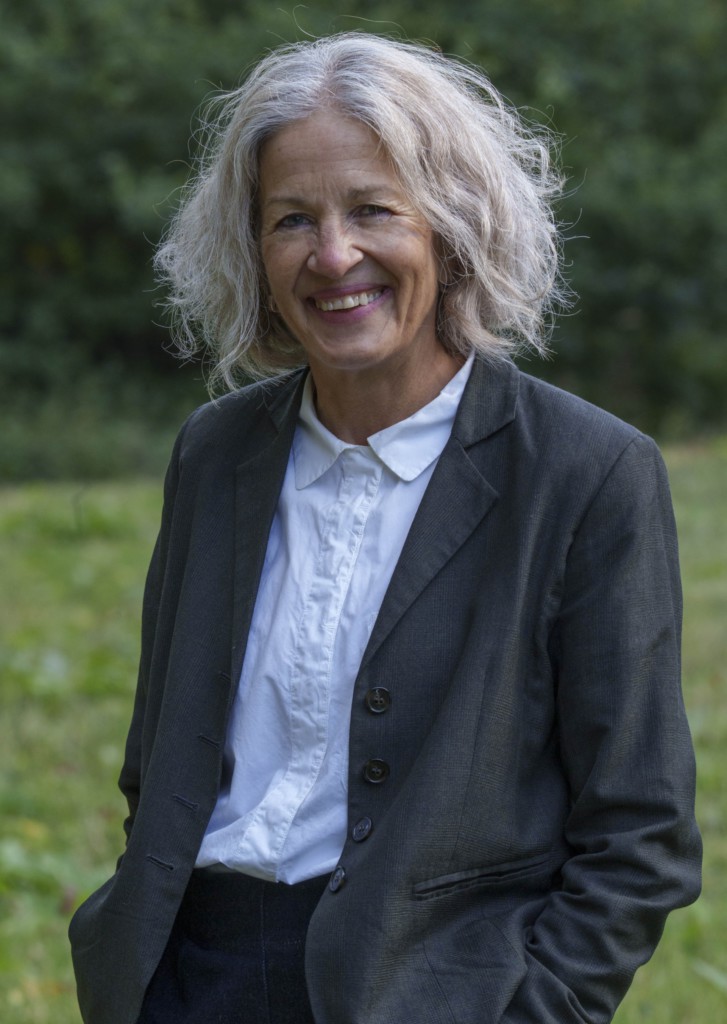
What have you been up to since graduating from the MA in Writing Poetry?
Along with two other members of the 2019 cohort, Roger Bloor and Mary Mulholland, I set up The Alchemy Spoon magazine where I worked as an editor until last year. The magazine is going from strength to strength.
Amongst others I have been commended in The Telegraph, Bridport, Troubadour, Ware, Verve, Newcastle and National competitions. I have come second in the Ver, Charm, Fish, Oxford Brookes and Kent and Sussex prizes and first in the Cafe Writers, Ver (twice), Sentinel Quarterly and Edward Thomas prizes. I was also commended in the Forward Prize in 2023.
My work has recently been published in Oxford Poetry, Magma, The London Magazine, Poetry London, The Rialto, Pomegranate London, The Moth, The Telegraph poem of the week, The Oxford Times, and Under the Radar.
I have also recently selected 10 poems about Wellbeing for Candlestick Press and I volunteer at Oxford Poetry Library and teach poetry in schools and in workshops nationwide.
My full collection Say it With Me is published by Seren 2023 and my pamphlet On Long Loan was published by Live Canon in 2020.
What sort of subjects do you like to write about?
People, family, quirkiness, dogs, religion, home.
What’s in the poetry pipeline?
I would love to finish my 2nd collection. One third left to go…
How did the MA in Writing Poetry affect your life?
It made me be disciplined to write; to take it seriously. It gave me many wonderful new friends. It has led to a different life.
Are there any memories of the MA that you would like to share?
The summer schools were probably the richest learning experiences of my life.
Is there one particular moment on the course that you would like to mention?
Tutor Glyn Maxwell’s advice on line breaks. Something clicked in me.
Vanessa’s collection Say it with Me is available here from Seren Books.
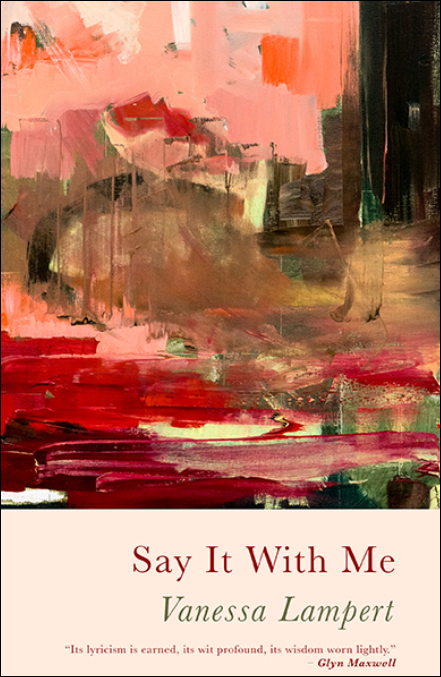
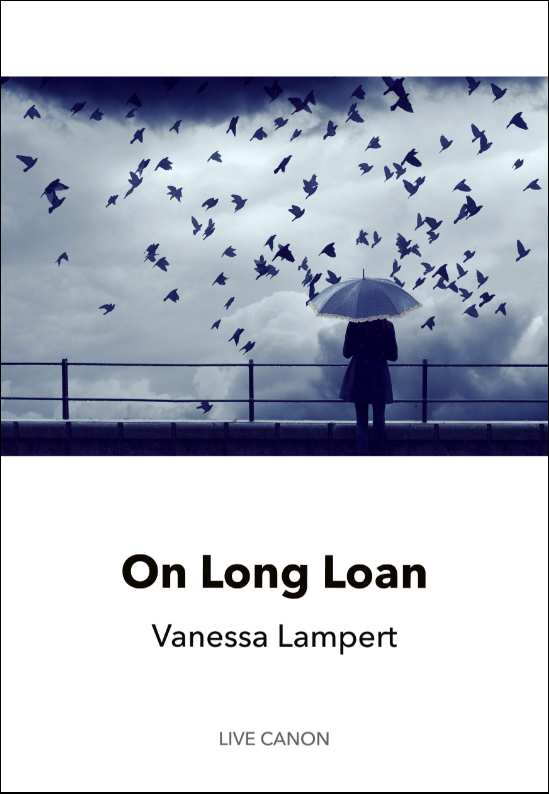
Vanessa’s pamphlet On Long Loan is available here from Live Canon.
Ben Verinder MA, Class of 2023

What have you been up to since you graduated?
I won the 2024/5 Environmental Poet of the Year prize with my pamphlet How to Save a River, which was a product of the MA in Writing Poetry course. I am very excited to be reading at Grasmere and in Athens as part of that prize.
What inspires your poetry?
I am predominantly a nature poet but I do write around lots of other topics. Loss is a common theme – but isn’t it for many of us? The intricacies and mechanics of the natural world inspire me but these days I find that almost anything can be a touchstone. I am currently working on poems about subdural haematomas, the Stamford marshmallow experiments and the Seychelles giant millipede.
What are your poetry plans?
I am in early discussions about a collection but otherwise I’m just heads down with writing. I have just finished a series of sonnets based around the Natural History Museum’s Wildlife Photographer of the Year award so I am hoping to find a good home for them, perhaps in pamphlet form?
How did studying on the MA in Writing Poetry impact you and your work?
The MA was an excellent course. It gave me the craft and connections to put my poetry out into the world with greater confidence and, I hope, greater skill.
Why did you choose to study the MA in Writing Poetry at Poetry School?
It was recommended to me by previous MA alumnus and now Poetry School Tutor, Natalie Whittaker.
Do you have any particular memories of the MA that you would like to share?
I was lucky enough to be part of a cohort of very friendly and very skilled poets. This, combined with the tutelage of Tammy Yoseloff and Glyn Maxwell, alongside an impressive roster of guest tutors, made it a very special couple of years.
The summer school in London was a highlight. I vividly remember stepping out from a morning of workshops with Caroline Bird and Joelle Taylor, my head fizzing with excitement!

Ben’s award-winning pamphlet How to save a river is available here.
Natalie Whittaker MA, Class of 2020
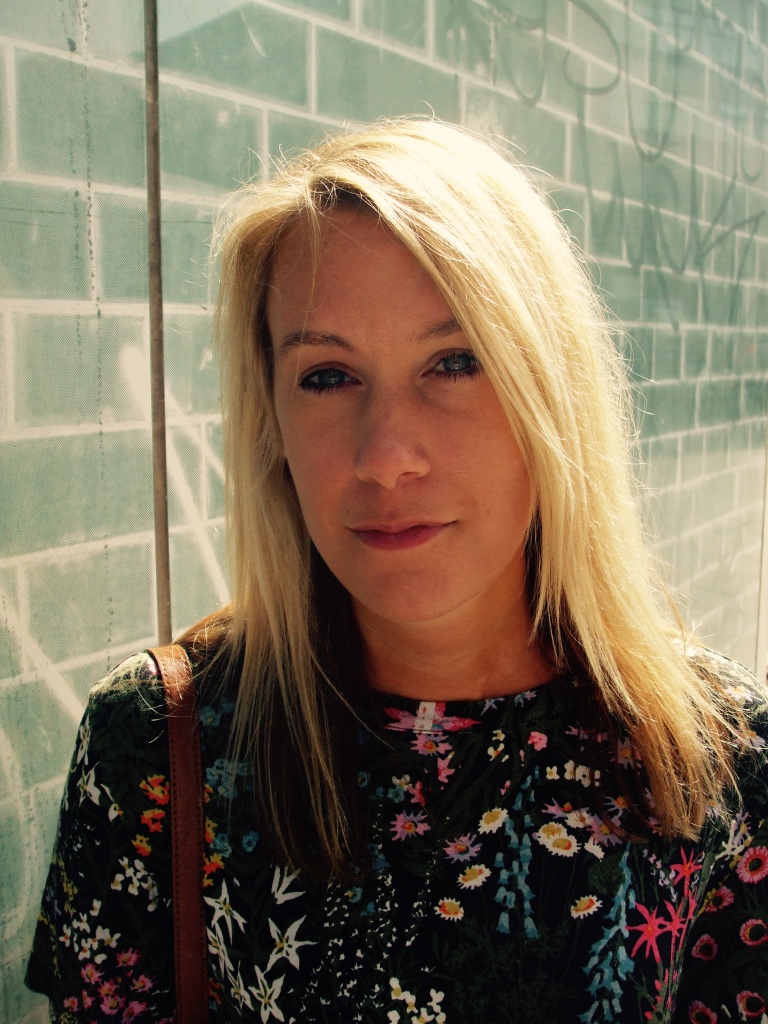
What sort of subjects inspire your poetry?
Before 2019, I would have said my most usual subjects were: class, childhood, London, and the environment (both urban and natural). My first pamphlet, ‘Shadow Dogs’, focussed on these subjects. Then in 2019, when I was in the second year of the MA, I lost a baby at quite a late stage into the pregnancy. That inevitably became my ‘subject’ for a while, whether I wanted it to be or not.
What have you been up to since graduation?
In 2021, my second pamphlet, ‘Tree’ was published by Verve Poetry Press. The sequence of poems that eventually became ‘Tree’ started out as my final MA portfolio.
Earlier this year, my first full collection, ‘The Point is You Are Alive’ was published by Broken Sleep Books. It’s a collection that I’m really proud of.
What are your future poetry plans?
I’ve started doing some teaching for the Poetry School, which I’ve really enjoyed. I’ve got another online workshop lined up for next year, and hope to offer more in the future.
How did the MA in Writing Poetry affect your writing?
The structure and requirements to produce a portfolio definitely helped to shape what eventually would become ‘Tree’. I also started to experiment more with form.
What made you choose to apply for the MA?
I’d had really positive experiences attending one-day and short course workshops with the Poetry School over the years, so thought I’d commit fully and go for the MA! It felt like the right time for me.

Natalie’s first pamphlet Shadow Dogs is available here and her second pamphlet Tree is available to buy from Verve Poetry Press here.
Her full collection The Point is You Are Alive is available from Broken Sleep Books here.
Natalie is teaching a course for our Poetry School Spring Term, Transreading Elizabeth Bishop: Facts, Details, & the Unknown. Book a place to take inspiration from one of contemporary poetry’s true masters!
Lauren Thomas, Class of 2023

How did the MA in Writing Poetry affect your life and your writing?
Studying the MA changed everything, I made a proper structured space for something that is integral to who I am and have developed a deeper understanding of all things poetry which has also helped my teaching of it. The structure and calibre of the course was really appealing as well as the London/Newcastle connection.
Tell us about a moment on the course that affected you.
I think its cumulative, the continuous engagement with other people’s writing in workshops and tutorials just trains you to be a really critical editor, being exposed to work you might never have come into contact with otherwise. Also, the really supportive and attentive feedback from my tutors was so valuable. The summer schools in both London and Newcastle were absolutely amazing. The number of poets I got to meet and the workshops I attended were just so inspiring, and the social side was really special too.
What inspires you to write?
I am inspired by the natural world as well as visual art and music. I write about all sorts of things but my poems are often set in the natural world and usually presented through the lense of female perspective. I am interested in eco-poetics, landscape and environment as well as how we experience time and memory.
What have you been up to since graduating from the MA in Writing Poetry?
Since I have graduated I have continued writing and set up an online poetry magazine, Black Iris Poetry with Sarah Gibbons ( a poetry MA buddy and exceptional poet) I have loved this project and enjoy the variety in getting to curate, edit and design the magazine.
I’ve been published in a variety of places such as Magma, Poetry Wales, The London Magazine, 14 Magazine and had one of my poems spotlighted by Poetry London presents. I was longlisted in the National Poetry competition and commended Magma’s 2025 poetry competition. I’ve been mentored by Liz Berry this year and have been working on a couple of pamphlets. I’ve kept in touch with the friends that I made on the course and continued to attend workshops and events.
What are your future poetry plans?
To keep writing! I am hoping to publish a pamphlet this year, and also I will continue to write and send out work, but the best part of the world of poetry is the community and so I hope Black Iris continues to contribute to the poetry world. I’ve really enjoyed the reading and launch events we have organised over the last year or so and hope to do more of these as well as running some Black Iris writing workshops in the near future.
Visit the Black Iris website here to read the first four issues and subscribe to receive their latest news and updates.

Lauren also won the Live Canon International Single Poem Competition last week. Congratulations, Lauren!
To read her winning poem The Beekeeper of Heligan, and all long and shortlisted poems (among them, many current MA in Writing Poetry students, and graduates), you can buy a copy of the anthology here.
Barbara Barnes MA, Class of 2018
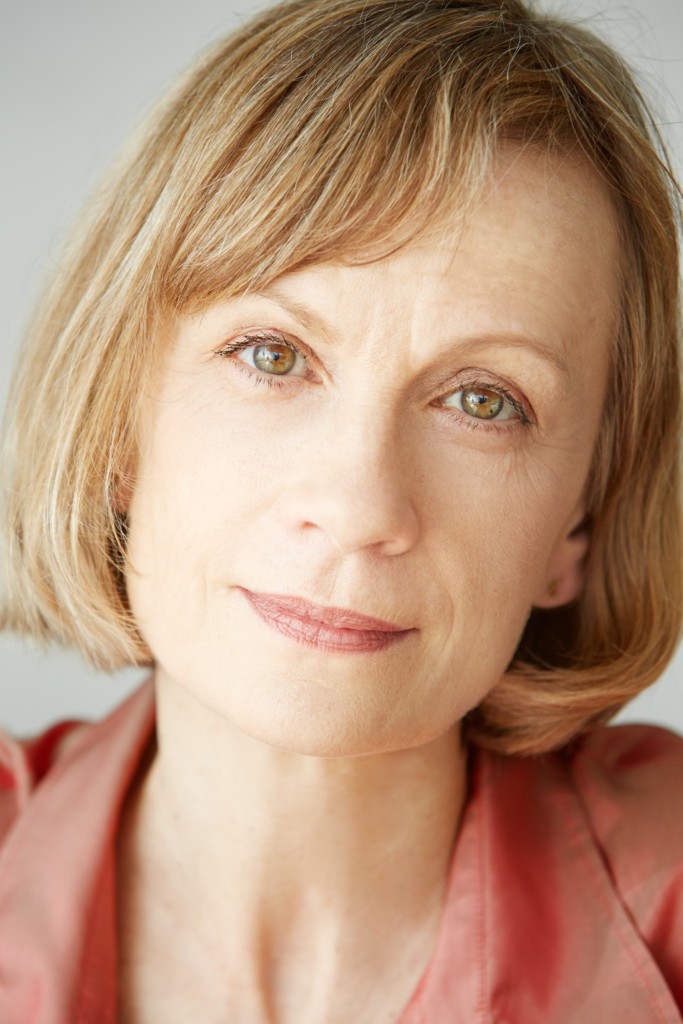
When did you start writing poetry?
I began writing poetry in Roddy Lumsden’s Wednesday group at The Poetry School.
What sort of subjects do you like to write about?
Many of my poems are about the world of performance (I’m an actor) and about Canada (where I’m from) and lots of other things that seem completely unrelated to both those themes. Many poems begin as snippets of overheard conversations on the bus from Brixton to my house. Or memories that come to mind while I’m on that bus. It’s an extremely useful journey!
What have you been up to in the poetry world since graduating from the MA?
I’ve had poems published in Poetry London, Butcher’s Dog, Ambit, The Brixton Review of Books, Black Iris, The Alchemy Spoon, The Interpreter’s House, Under the Radar, Arc Poetry Canada and others.
My collection Hound Mouth won the Live Canon Collection Competition and was published in 2022. I’ve been commissioned to write poems responding to artwork in galleries, which I really love doing. I also return to the MA as a workshop leader in the ‘Drama Day’ run by Glyn Maxwell as part the Summer School.
What’s in the poetry pipeline?
I’ve been awarded a Halls Island Artist Residency in Canada for August 2025, which is supported by an Authors’ Foundation Grant. I’m hoping to spend my week on the island working on my second collection while staring out at and swimming in beautiful Koshlong Lake in Haliburton, Ontario. Pinch me!
How did the MA in Writing Poetry affect your life?
The MA completely changed my life in so many ways. I didn’t have any post-secondary formal education, so it was extraordinary to have the chance to put my focus on studying. It created a space and structure in which to learn and write, as well as to meet amazing poets with similar pursuits. And because the MA is part time, I was able to continue my work as an actor, which was essential.
The MA was a crucial part of what has been a wild ride of highs and lows. For me it provided a structure from which I was allowed to stray and return.
Are there any memories of the MA that you would like to share?
I loved the ‘workshop’ moments where colleagues shared their work. That risk-taking and cliff edge experience had a the element of focus, excitement and daring that are part of my work as a performer, so I felt completely at home!
Also, those eureka moment during a one-on-one tutorial when I realised that writing was a process of involving close attention out of which a path for each poem appears. That generous collaboration was priceless. Also, as an actor, I love a good costume. Wearing a graduation gown felt like one of those dreams where you’re unexpectedly in a strange and curious adventure!

You can buy Barbara’s collection Hound Mouth from publisher Live Canon here.
Greta Ross MA, Class of 2022
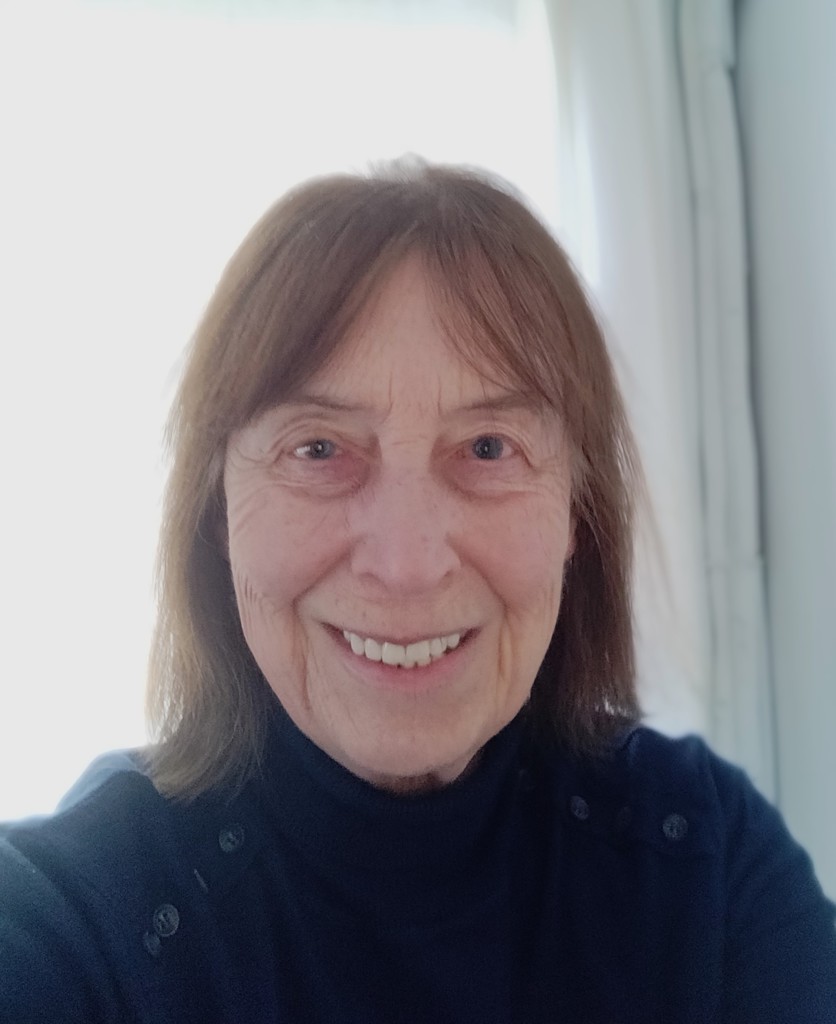
What inspired you to start writing poetry?
I love the sound and texture of language, its musicality and its harshness, when needed, to creatively express ideas, reflections, memories and to explore new ways of perceiving and appreciating common things around us.
What do you like to write about?
I write about a wide range of subjects, which can range from political injustice to current social issues, but also human nature in its broadest sense. I also like to invent poems that are grounded in actual personal or family stories and experiences, but are not always autobiographical. I try to portray emotional truth about such memories and so feel able to create a blend of fiction and truth.
What have you been up to since graduating from the MA in Writing Poetry?
Since graduation, I was successful in winning the 2022 Canterbury Poet of the Year international competition, and I have been longlisted and shortlisted in 11 other competitions, as well as being published in 13 anthologies and poetry magazines. I was the featured poet in Poetry Kit’s July 2023 edition #199 of ‘Caught in the Net’ and won 1st prize in the 2023 Poetry Kit competition.
My self-published pamphlet ‘Coffee with Bach’ was launched in April 2025. I do not self-promote or use social media except for WhatsApp, and prefer being part of a face-to-face local writers group, as well as a monthly “writing together” zoom session with a number of fellow MA graduates from my year. Through online poetry magazines and the Poetry Society newsletter I try to keep up with current trends and events in the poetry world, despite now living overseas.
How did studying on the MA in Writing Poetry affect your work?
The tutorials were of a very high standard, and I improved my poetry techniques through the two-year course. I am pleased that I have made like-minded good friends though the course.
Annabelle Markwick-Staff MA, Class of 2022
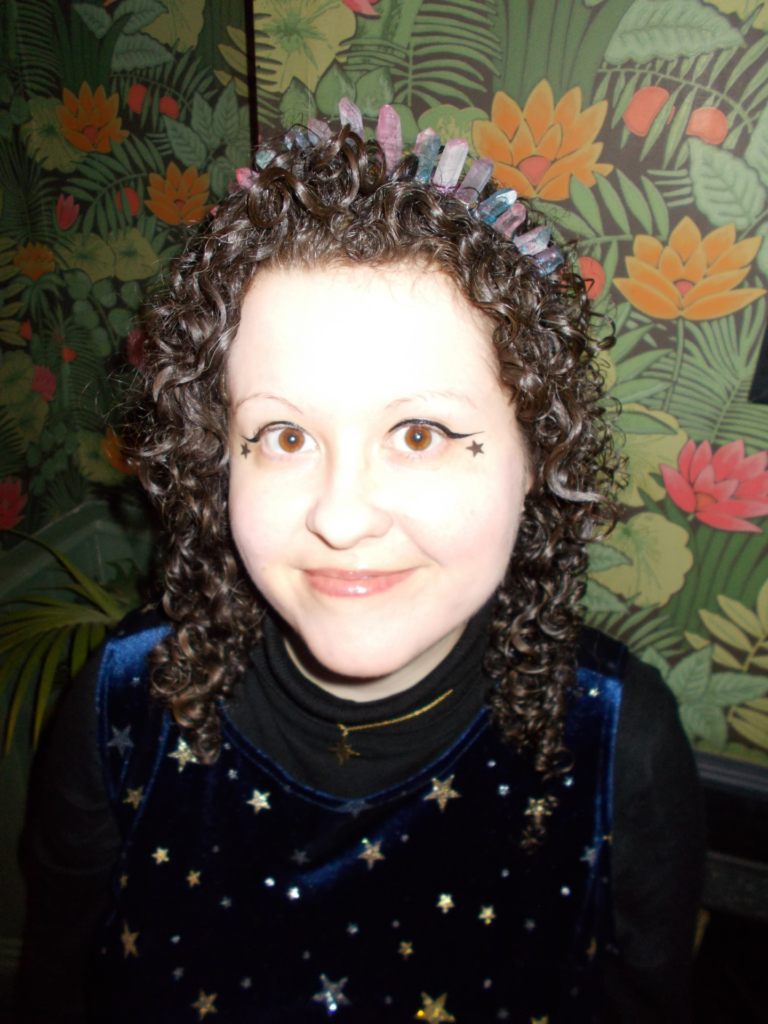
What sort of subjects inspire your poetry?
I write about the wonder that is found everywhere, even in unexpected places and pop culture. I’ve written poems about the 2012 Olympics, Barbie, Eastenders, the Winter Solstice, and the mysteries of taking a bath.
I have also written many poems about strange and misunderstood creatures and plants. In these poems, I celebrate the natural world and its more unusual denizens. Writing in the voices of the more-than-human, I am able to say things that I can’t say in my human voice. I also write about, and in the voices of, Goddesses and magical women – the queens of life, death, sex, art and magic. Nature, spirit of place, ancestors, pets, pop-culture, friends and family, other poets, non-fiction books, art, my experiences, emotions and dreams inspire my poetry.
What have you been up to since graduation?
Since I graduated, my poems have been published in London Grip, Sage Cigarettes, Black Bough Poetry Christmas-Winter Anthology Volume 4, and Ink Sweat & Tears. I was shortlisted by Hedgehog Press for their Baker’s Dozen Pamphlet Competition in 2023. I was also shortlisted for Fawn Press’s development programme in 2024.
I have regularly attended Tammy Yoseloff and Glyn Maxwell’s workshops. Being part of a poetry community, and continuing to give and receive feedback has helped me to keep writing and learning. I often perform my poetry, including at readings organised by the Poetry School, regularly.
How did studying on the MA in Writing Poetry affect your life?
It revitalised my life and poetry. I am happier and more creative now. I learnt as much from the other students as I did from our inspiring tutors. Workshopping each other’s poems was so powerful. Reading classmates’ poems made me think about new things, while receiving feedback from them and the tutors helped me to see my work through fresh eyes. We are still in touch, and I feel like this is the MA which keeps on giving.
Is there a particular moment on the course that has affected your writing?
Tammy Yoseloff’s ekphrasis workshop during the first Summer School inspired me to start writing about art, which I love.
How has the MA in Writing Poetry impacted your life?
It has enabled me to create a second career for myself, helped grow my technical ability and confidence as well as improved my knowledge of poetry in general. I have made many new friends and I am sure it has helped me be successful in a number of opportunities I have pursued since graduating.
You can read Olympics by Annabelle and published by Ink, Sweat and Tears here.
Barbenheimer/ Babalon by Annabelle and published by Sage Cigarettes Magazine here.
Follow Annabelle on Instagram here.
Jeremy Langrish MA, Class of 2016

When did you start writing poetry?
I began to write poetry some 30 years ago as a distraction from the dry scientific stuff I had become accustomed to by virtue of my education, and the nature of my work in a scientific environment.
What sort of subjects do you like to write about?
I continue to try to articulate the absurd, the curious state of things, and observations of other people.
Why did you choose to study the MA in Writing Poetry at Poetry School?
I had just retired from a company I had been employed by for 30 years. I was excited by the prospect of engaging with the novelty of the ‘Experiment’, and my endeavour to contribute to its success by ‘succeeding’ myself.
Tell us about a moment on the course that affected you.
I have an anecdote about having to learn poems because paper or a book in my hands shook to much to read, and how an evening event arranged by Tamar Yoseloff facilitated my dispensation with this nervousness.
Is there a moment on the course that you remember especially affecting your writing?
The whole experience was enchanting… people talking about the things one’s always known but not consciously, it gave me a much broader scope to consider, evaluate and use other’s poetical work in my own writing.
What have you been up to since you graduated?
I have continued to visit and read at open mic groups in London and the south east, I have recently integrated my final portfolio into a poetical narrative in the theme of ‘nature inhabiting spirit’, I have a collection of ecological poems in manuscript ready to add to my 5 other collections.

You can find and purchase Jeremy’s collections including Cosmos, Wonderland and others here.
Joshua Hallam MA, Class of 2024

What have you been up to since you graduated?
Since graduating I’ve carried on my poetry community events organisation, Word Space. With a good bit of imposter syndrome whittled away, my workshopping and editing have switched up a gear, and Word Space now has 16 events taking place across London every month. Also community poetry events, workshops, online courses, publishing an indy annual poetry magazine – Kite String (on our 3rd edition), and a partnership with Waterstones.
Working with another former MA student, Ewan Monaghan, and the Writing School Online – I’ve organised poetry performance events showcasing some of the best and brightest in poetry including Liz Berry, Ella Frears and Kim Addonizio.
In my own practice, I was beyond stunned to have a poem longlisted in the National Poetry Competition 2024 (a poem from my final portfolio, no less).
I also teach a beginner level poetry writing course with The Writing School Online.
What inspires your poetry?
I typically write about people. I think we’re unfathomably weird and I can’t even start to make sense of us. I like writing what’s going on in our heads. A good poem helps me to know a tiny bit more about our shared strange condition. I like to try and write those poems.
What are your future poetry plans?
I hope to expand Word Space. I think there’s a growing, radical necessity for spaces where people can actually listen to each other and I love being able to use the time and the skills I have, to help build those places where attention isn’t monetised and scrapped over but deeply appreciated. I find it amazing that poetry seems capable of helping even a tiny bit with that massive societal problem; I just got into it because I liked ranting about words with likeminded people but it seems to have gotten out of hand in a great, cascading way.
I’m also clubbing away at a pamphlet manuscript and when it’s ready, would love for someone to swoop down and publish that one day.
How did studying on the MA in Writing Poetry affect your work?
The course gave me the confidence and grounding in knowledge to teach, hold space for other poets working on their craft, and introduce people to poetry. The learning is so intense and thorough, that I left feeling like I might actually know what I’m talking about!
I’m categorically a better editor after spending two years witnessing the editing and input of such incredible coursemates. The analysis, quality and range of perspectives in workshops helped me with all of the skills that I use every day in workshops.
Why did you choose to study the MA in Writing Poetry at Poetry School?
A recommendation from a very trusted and, as it turns out, bang on source.
Do you have any particular memories of the MA that you would like to share?
Summer School in Newcastle was particularly good. The guest tutors were incredible and being together as a cohort was such a lovely way to finish the journey.
Tell us about a moment in a workshop, masterclass or tutorial that affected your writing.
Every single workshop, masterclass and tutorial were formative and constructive to my writing practice. The one example that jumps to mind was ‘sonnets’: semester one, year one. C.K. Williams’ ‘The Doe’ still remains one of my favourite poems and this session introduced me to the poet who is my biggest influence and ‘mentor’. A core doctrine of the course, where content meets form, came out in this session and remains part of my thinking every time I pick up a pen, or rant at a workshop group.
You can sign up to the Word Space mailing list here and also follow on instagram at @wordspacepoems.
And check out the Word Space events here.
Mary Mulholland MA, Class of 2019
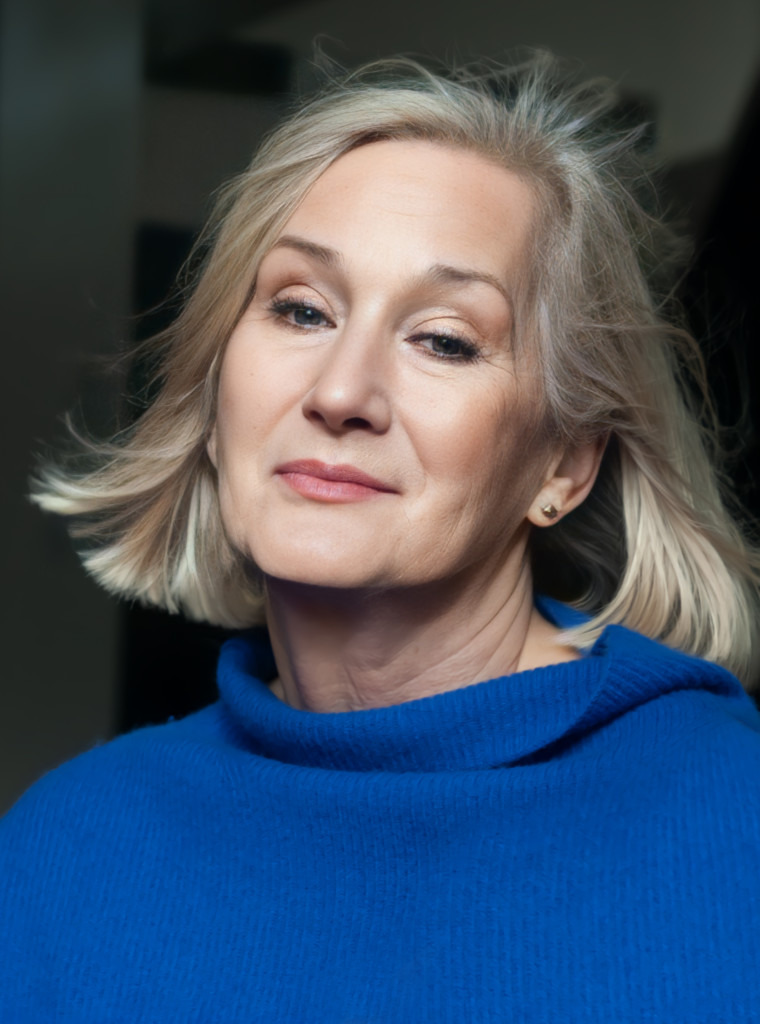
When did you start writing poetry?
Around 2009 when I randomly registered for a Pascale Petit workshop term at the Tate Modern.
What have you been up to since you graduated from the MA?
With fellow graduates, Roger Bloor and Vanessa Lampert, we set up a poetry magazine, The Alchemy Spoon (Vanessa later left and Diana Cant took her place) We are now on issue 16. I had already founded a workshop group, Red Door Poets, and in 2020 we started our very successful online platform of Readings with Special Guests.
Although I’d tried competitions and been shortlisted in Wasafiri and Bridport, I didn’t start submitting to magazines until I graduated. Since then my work has been published widely, including Under the Radar, Arc, Stand, Magma, Rialto, Mslexia, Aesthetica, and I’ve had several competition successes too. I have two collaborations with Simon Maddrell and Vasiliki Albedo, (Nine Pens), a pamphlet from Live Canon, another forthcoming from Broken Sleep. I’m working on a collection right now.
What impact did the MA in Writing Poetry have on you?
It permitted me to make poetry central to my life, which I think I’d been avoiding.
Is there a moment on the course that you remember especially affecting your writing?
At Summer School in Newcastle, I felt overwhelmed as other people shared their near perfect poems during a workshop and I asked Tara Bergin if it was normal to feel this way. She said, “Absolutely”. She said could never share anything immediately, and invited me to email her my work. The poetry world can sometimes feel very competitive, but she was so authentic, so positive and encouraging about what I’d written.
You can buy a copy of The Elimination Game from Broken Sleep.
There will be an online launch for this and other Broken Sleep July 2025 releases on Wednesday 30 July. Mary will also be launching the book at the Devereux Pub on Friday 8 August with other readers including Tamsin Hopkins. Tickets here.


You can buy Mary’s pamphlet What the Sheep Taught Me published by Live Canon here.
Follow the Red Door Poets on Facebook.
You can read all about and check submission windows for The Alchemy Spoon, the poetry magazine that Mary co-founded and edits with fellow graduates, here.
Oenone Thomas MA, Class of 2024

When did you start writing poetry?
I have written for myself ever since I can remember. As a child I read all the time, and when I didn’t want the books I loved to end, I tried to make them continue!
Poetry came later, as a teenager, when I was trying to create soundscapes and more abstract impressions.
What inspires your poetry?
It’s the resonance of the sound of a word next to another word, or of a phrase, that gets a poem going. After that it feels like an invitation to play, and then whatever’s on my mind or central in my life at the time emerges into the open space.
The poems I have been writing in the last year have been a response to walking the Cuckmere Pilgrim Path. I’ve wanted to convey breathing, heartbeat, footsteps and intentions in the rhythms and forms of the poems as well as in their content.
What poetic success have you had since graduation?
I have had poems published in poetry magazines and anthologies, I was shortlisted in the Live Canon International Poetry Competition, and longlisted in the National Poetry Competition. I was also highly commended in the Sound of the Year Awards.
For the past year I have been poet in residence for the Cuckmere Pilgrim Path, and the residency culminates this month with the publication of my first collection, Self-Portrait as Scallop Shell.
What poetry plans do you have?
I have absolutely loved leading poetry-writing workshops as part of my residency year. It combines my passion for poetry with my experience in facilitating group work. I really enjoy coming up with new and interesting ways of generating writing and it’s a delight to watch others creating work in response.
How did studying on the MA in Writing Poetry affect your life?
Applying for the MA was the best decision I have ever made. It has transformed me and my writing.
Do you have any particular memories of the MA that you would like to share?
I have many great memories of the course, but I think overall it was the encouragement and unfailing support of tutors and fellow students that stands out.
Tell us about a moment in a workshop, masterclass or tutorial that affected your writing.
I remember Glyn Maxwell telling us that ‘line break is body language’ and something clicked and I have tested my work against this ever since.

Oenone’s new publication Self-Portrait as a Scallop Shell is available to buy here.
The book will be launched at 7.00 p.m. on Wednesday 23 July, 2025 at Berwick Church, East Sussex, BN26 6SR. All welcome to attend.
Visit Oenone’s website and read more about her here.
Sue Wallace-Shaddad MA, Class of 2020
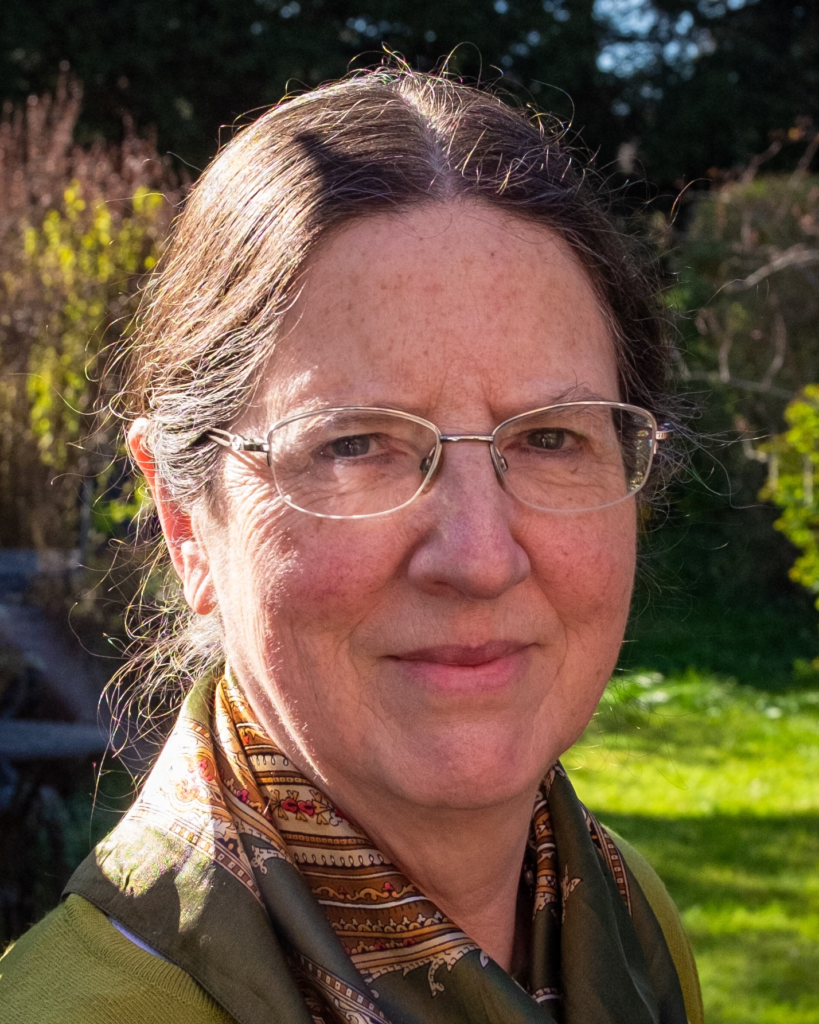
Do you have any poetry publication successes that you would like to share?
I have had three pamphlets published: A City Waking Up (Dempsey and Windle, 2020) about family, traditions, language and food in Sudan, Sleeping Under Clouds (Clayhanger Press, 2024) written in response to Sula Rubens’ paintings on the theme of displaced/refugee children and Once There Was Colour (Palewell Press 2024) about my family’s escape from the crisis in Sudan. (See links below).
I have been longlisted three times by Cinnamon Press in collection competitions and also previously by Maytree Press. Individual poems have been published by London Grip, Artemis, Fenland Poetry Journal, Ink Sweat & Tears, Poetry Space, The Alchemy Spoon, Acumen, Orbis and Finished Creatures among others.
What else have you been up to since you graduated?
I received an Arts Council Developing Your Creative Practice (DYCP) award 2023/24 for mentoring by poet Rebecca Goss. I have run poetry events in Suffolk on a regular basis and poetry workshops in Suffolk, Essex and Cornwall for adults and year 6 school children. am resident poet for Friends of Ipswich Museums and digital writer-in-residence for the Charles Causley Trust 2022-25.
As a trustee (and previously Secretary for eleven years) of Suffolk Poetry Society I am actively involved in helping run their annual festival and other events; I have run poetry walks and a workshop for Poetry in Aldeburgh. I have also started writing an arts column for a local newspaper.
What inspires your poetry?
I see myself as an observer. Themes I have been writing about include family life in Sudan, conflict, the changing role of women, dementia, loss, nature, also working and living in different countries as part of my British Council career. I write a lot of poetry in response to visual arts and come from a distinguished Scottish family of artists.
When did you start writing poetry?
I wrote some poetry as a child, at university and then from time to time during my international career with the British Council. On retirement in 2014, I decided to devote my time to developing myself as a poet (having already self- published one pamphlet) and undertook the MA. I had always wanted to write more poetry and I kept this idea alive over the years by remembering and turning over in my mind one image I had written in university days – ‘pent winding ink’.
What made you decide to study on the MA in Writing Poetry?
I had met one of the tutors Tamar Yoseloff and was particularly interested in her knowledge of ekphrasis. I liked the emphasis on one’s development as a poet and the practicalities relating to publication etc. I knew Newcastle University, who accredit the Poetry School’s MA, to be a good university so this partnership made sense.
How has the MA in Writing Poetry impacted your life?
It has enabled me to create a second career for myself, helped grow my technical ability and confidence as well as improved my knowledge of poetry in general. I have made many new friends and I am sure it has helped me be successful in a number of opportunities I have pursued since graduating.
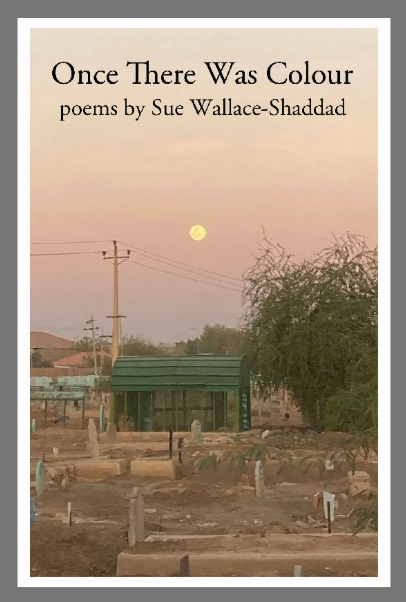
To find our more about Sue and see details of publications and events, click here for her website.
Order Once There Was Colour here.
Order Sleeping Under Clouds here.
Charlie Brogan MA, Class of 2024
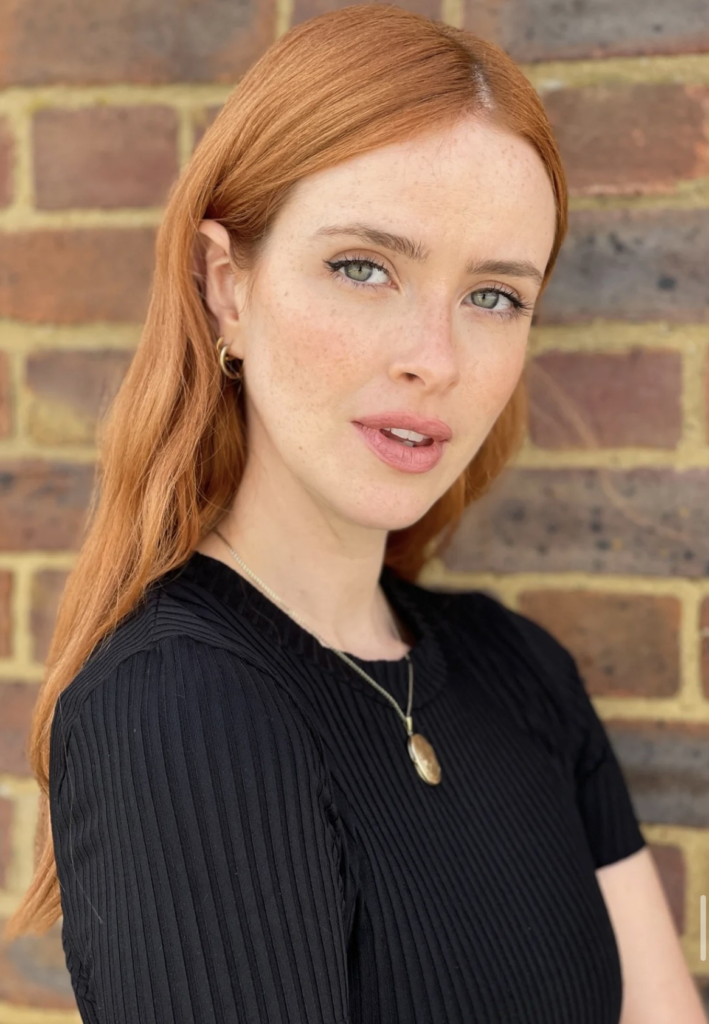
What have you been up to since you graduated?
Since I graduated I have signed with a literary agent, and have been working on my debut novel and first poetry collection. I have performed with Ella Frears and Liz Berry at an event organised by fellow Poetry School students and alumni, Ewan Monaghan of the Writing School and Joshua Hallam of Wordspace!
I’ve also worked on a visual poetry series, ran workshops, and will soon be teaching a series of poetry workshops on heartbreak and healing via my Substack.
Most importantly though, since graduating, I have considered myself ‘a poet’, whether published, performing, or not! I suppose a poet lens is another way of seeing that doesn’t leave you.
What sort of subjects do you cover in your poetry?
I generally write about girlhood and womanhood. In the book series ‘Look Again’ by the Tate, Claire Marie Healy quotes: Girlhood can be understood as less a prescribed length of time, more a way of seeing that never really leaves us.
I am fascinated by the ‘girlhood lens’. Poems of praise, fear, retribution, pure rage, envy, sex, friendship, ah! It all pours out when I see my womanhood and girlhood as a ‘way of seeing’.
Why and when did you start writing poetry?
I started writing poetry in my childhood diary; I must have been seven. I was trying to make sense of the world as an anxious child, and it came out in rhyme! I developed a serious obsession with poetry however, when I discovered Kim Addonizio as a teen. I didn’t have to try and write like Larkin, I could be fierce, sassy, and write about my observations as I moved through the world.
How did studying on the MA in Writing Poetry affect you and your work?
I walked into the classroom on the first day feeling like a fraud, and confused about my writing. I left with a renewed love for my work I didn’t know was possible, a penchant for a sonnet, and friends for life!
What made you choose to study the MA?
The first poetry class I ever took 12 years ago was at the Poetry School, and the obsession never waned.
Tell us about a particular moment on the course that has stayed with you.
Reading modern sonnets with Tamar Yoseloff. Genuinely life changing for me!
Steph Morris MA, Class of 2017
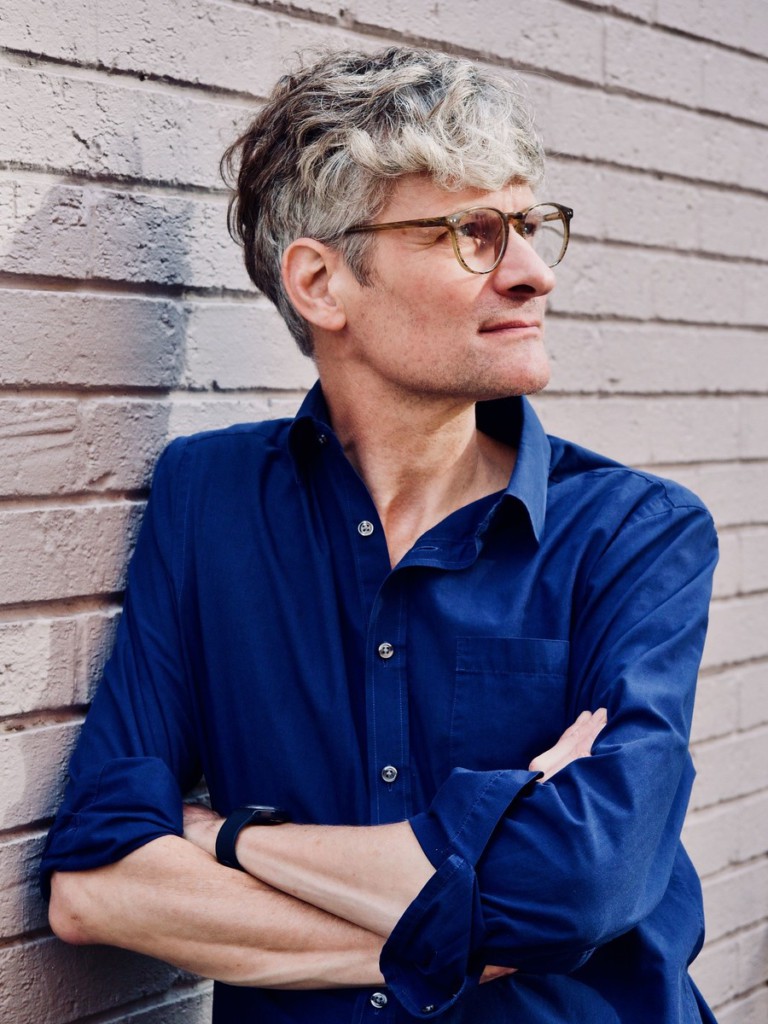
When did you start writing poetry?
I first began writing poetry in the 2010s after a creative and emotional hiatus, seeking a new artform and new ways to articulate new experiences, perhaps more personally and on a different scale.
What inspires your poetry?
I write a lot about plants, my passion, and I respond to things going on in my life and the world around me, so it’s personal and political too. I take inspiration from other poets such as Kim Moore, Edwin Morgan or James Schuyler, but also from visual art and music, and my garden.
Have you had any publication successes that you would like to share with us?
I published a chapbook in 2020, Please don’t trample us; we are trying to grow! from Fair Acre Press. I did publish a collection of translated poems, by Austrian modernist Ilse Aichinger, and have had poems in magazines regularly, such as Under the Radar and The North.
What else have you been up to since you graduated?
I was longlisted for the National Poetry Prize and won the Live Canon Borough prize. I’ve been in a few anthologies too; recent highlights included Joy//Us from Arachne Press and Becoming from the Poetry Prescription series edited by Deb Alma. I was also a Royal Literary Fund fellow 2022-24 at Greenwich University which was an enriching experience, coaching students on their writing skills. I received a Developing Your Creative Practice grant from Arts Council England in 2021 to work on visual poetry, a ‘step change’ which would allow me to mix my visual art practice with my literary practice. I began making concrete/ visual poetry leading to an exhibition in 2023. I’ve also done some teaching myself since graduating, including a workshop for Poetry in Aldeburgh, where I also read.
How did studying on the MA in Writing Poetry affect your life?
The MA started me off on a lifetime’s journey of studying poetry, always reading more new poetry and poetry that is new to me, to see what I can learn from it, in the wider sense as well as technically, how it broadens my emotional life as well as teaching me approaches to writing.
Is there a particular moment on the course that affected your writing?
A class with the late, much-missed Roddy Lumsden on expanded ideas of what the sonnet could be, experimental, visual, sonnets in the loosest sense, led me eventually to produce my ‘visual pantoums’, some of which can be seen online in Mercurius Magazine. Roddy saw the Poetry School as having an ‘art-school ethos’ I didn’t need telling twice. I also learned about Pantoums on the MA.
Sarah Gibbons MA, Class of 2023
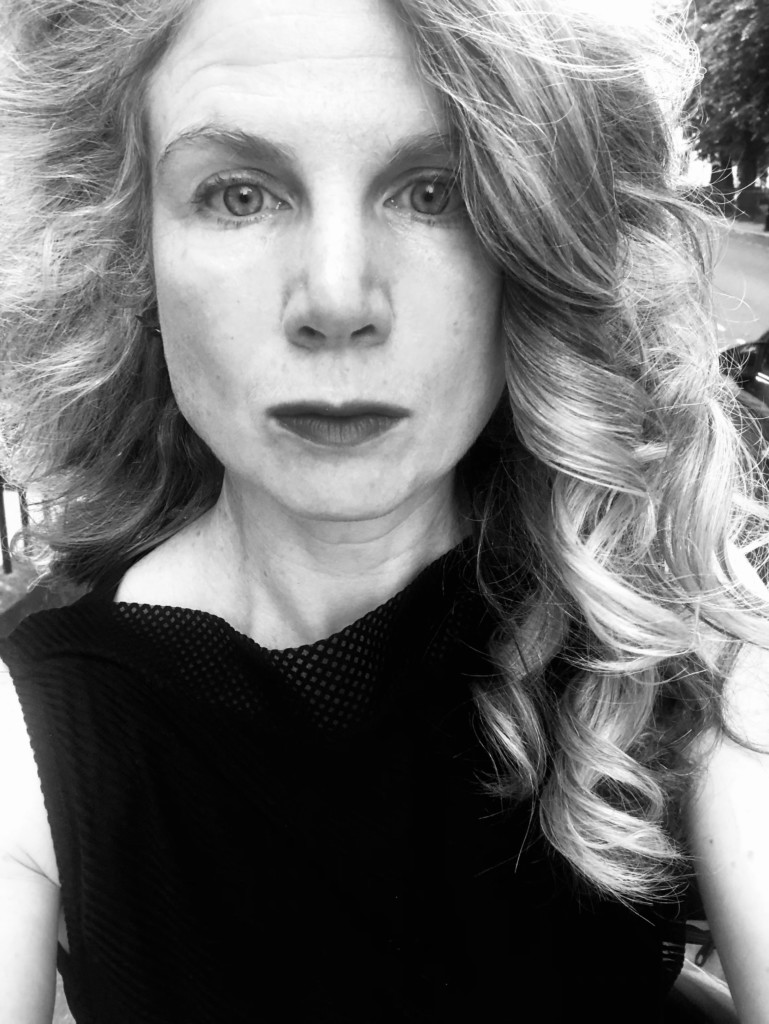
What have you been up to since you graduated?
I won the 2024 Alastair Reid Pamphlet Prize for I Go to the Devil. I’ve been longlisted for the National Poetry Competition, the Bridport Prize and the Rialto Poetry Competition, I’ve had work published in Mslexia, Under the Radar, And Other Poems and many other places.
With Lauren Thomas, (a fellow MA graduate) I started a poetry magazine called Black Iris , which publishes poetry and essays, and is going really well – we’re currently editing issue number four!
What inspires your poetry?
I try to write about things that tell me something about what it means to be human, and say something about the world we’re in now. The subjects of my work are pretty wide-ranging, from historical figures like Isobel Gowdie, to sex and family, political issues that make me angry, and currently, anything to do with sport.
What are you working on at the moment?
I’ve written a play based on my final portfolio from the MA and I’m currently working on a collection of poems about sport, from great or notorious sporting individuals to iconic sporting moments, to the role of sport and wellbeing cults in our lives. I strongly believe there needs to be more poetry about darts and cycling!
What impact has studying on the MA in Writing Poetry had on you?
Profoundly. It made me a much better poet, but it also made me a happier person. I made deep, lifelong friendships and I learned more about who I was and what kind of poet I needed to be to be happy.
Tell us about a significant moment on the course.
So many! All probably variants of me taking a poem I was struggling with to course tutor Glyn Maxwell, and him pointing to something on the page and saying: “It will be fine. You just need to do more of THIS.”
Kevin Scully MA, Class of 2024

Why and when did you start writing poetry?
As a child. I think my first poem was published (with payment) at the age of eight or nine! It’s been with me on and off ever since – like some medical conditions!
What sort of subjects do you like to write about?
God, sex and death, the holy trinity.
What have you been up to since you graduated?
I have picked up prizes in several poetry competitions, and had poems published in print and online journals and magazines. I have spent a long time working on Stations of the Cross (a Christian religious practice) and recently submitted this to publishers.
What is your main memory of the MA in Writing Poetry?
The camaraderie that flowed during sessions together. A real sense of common purpose, while respecting each person’s singular track.
Was there a particular moment in a workshop that affected your writing?
There was a ‘darling’, a favoured line which sank under the critique in the workshop. Deleting it improved the poem and it went on to publication.
How did studying on the MA in Writing Poetry affect your life and your poetry?
It reinvigorated me both in practice and personally. It was two of the happiest years of my life.





Add your Reply
You must be logged in to post a comment.